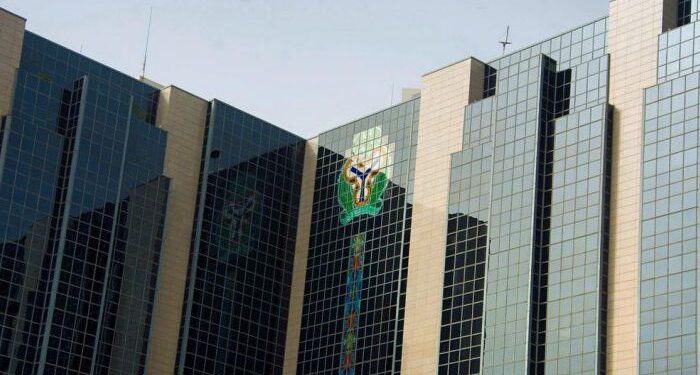The Central Bank of Nigeria (CBN) has stated that its recent monetary reforms are beginning to yield positive outcomes, citing early signs of easing inflationary pressures and improving stability in the foreign exchange market. According to the apex bank, the policy measures introduced over the past months—including tightened monetary conditions, improved liquidity management, enhanced market transparency, and coordinated fiscal-monetary actions—are gradually restoring confidence in Nigeria’s macroeconomic environment.
CBN officials explained that the series of interest rate hikes, aimed at curbing excess liquidity and slowing the rapid rise in consumer prices, have contributed to moderating inflationary pressures across key segments of the economy. While inflation remains high, the bank noted that the pace of acceleration has begun to slow, indicating the effectiveness of tightening measures implemented to counter the effects of supply disruptions, elevated energy costs, and currency fluctuations.

The apex bank added that improved oversight of the foreign exchange market has significantly reduced speculative activities that previously contributed to volatility. By introducing reforms such as enhanced monitoring of FX transactions, streamlined documentation processes, and the clearing of verified FX backlogs, the CBN said confidence is returning among investors, manufacturers, and international trade partners who depend on more predictable currency movements.
Officials noted that improved transparency within the FX market has encouraged greater participation from foreign investors, while the consolidation of multiple exchange windows into a more unified structure has made pricing clearer and reduced opportunities for arbitrage. The bank stated that these reforms have helped strengthen naira stability in recent weeks, even as global economic pressures continue to influence emerging markets.
Market analysts have also observed stronger liquidity inflows into the official FX window, driven by improved investor sentiment and higher foreign exchange supply from autonomous sources. Exporters, particularly in the non-oil sector, have been responding to incentives that allow them better access to FX proceeds, which the CBN said is contributing to overall market stability.
On the inflation front, officials highlighted that recent data show a slowdown in food price increases, attributed in part to coordination with relevant ministries to tackle logistics challenges, boost food supply chains, and support targeted interventions in agriculture. The CBN said its development finance programmes—although now better streamlined—continue to support critical sectors, ensuring that interventions remain efficient and impactful without contributing to inflationary pressures.
The apex bank emphasised that the reforms are part of a broader medium-term strategy to restore macroeconomic stability, rebuild foreign reserves, curb speculative demand for foreign currency, and enhance the country’s attractiveness to foreign and domestic investors. According to officials, ongoing collaboration with the Ministry of Finance and other federal agencies is helping align monetary and fiscal policies, reducing the policy mismatches that previously hindered economic stability.
Economists and financial experts agree that the early signs of improvement are encouraging but stress that consistency will be key to sustaining the gains. They noted that Nigeria’s economic challenges—ranging from high import dependence to structural bottlenecks in manufacturing, agriculture, and energy—require long-term solutions that extend beyond monetary reforms. However, they acknowledge that a stabilised currency and more predictable inflation trajectory lay an important foundation for broader economic recovery.
The private sector has also reacted positively to recent developments. Manufacturers, who previously struggled with the unpredictability of import costs and high production expenses, said the relative calm in the FX market is helping them plan better and reduce pricing uncertainties. Importers and exporters alike have expressed hope that the reforms will continue to improve access to foreign currency at more stable rates, reducing operational disruptions.
Banks and other financial intermediaries said the reforms have strengthened confidence in the market and restored discipline in FX transactions. They noted that stricter compliance requirements and greater visibility in FX flows have reduced opportunities for market manipulation, encouraging a more balanced exchange rate environment.
Despite the progress, the CBN acknowledged that significant work remains to achieve full price stability and sustain naira strength. It said upcoming policy decisions will focus on maintaining a balanced approach—tight enough to control inflation while supportive enough to encourage investment and production. The apex bank emphasised that further transparency, stronger supervisory frameworks, and continuous consultation with stakeholders will play a major role in keeping the reform momentum on track.
Looking ahead, the CBN expressed optimism that Nigeria’s macroeconomic environment will continue to stabilise as reforms deepen and structural improvements take shape across key sectors. It reiterated its commitment to safeguarding monetary and financial stability, ensuring that its policies support long-term growth, investor confidence, and economic resilience.
Support InfoStride News' Credible Journalism: Only credible journalism can guarantee a fair, accountable and transparent society, including democracy and government. It involves a lot of efforts and money. We need your support. Click here to Donate
